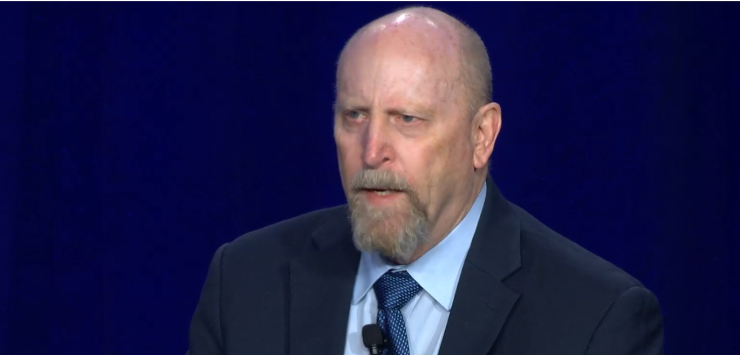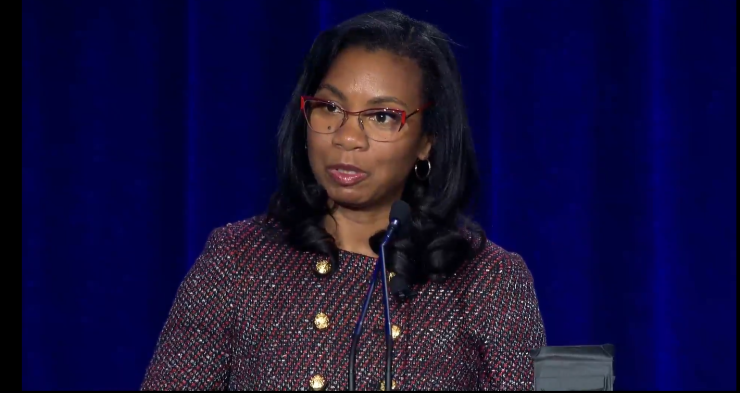The Securities and Exchange Commission's chief accountant cautioned auditors and public companies about the statement of cash flows after spotting problems that could lead to a financial restatement.
"The statement of cash flows has consistently been a leading area of restatements, and we have observed that a significant majority of these restatements represent prior period errors corrected in the current period comparative financial statements, or what are referred to colloquially as 'little r' restatements," said SEC chief accountant Paul Munter in a
He said the SEC sees the statement of cash flows as a critical component of high-quality financial reporting for investors and reminded both issuers and auditors to approach the preparation, review, and audit of the statement of cash flows with a focus on quality for the benefit of investors.
Among the main areas of concern are presentation and disclosure. "We have observed that determining the appropriate classification of cash flows as operating, investing or financing activities can, at times, require significant judgment," said Munter. "Accordingly, we believe it is important that issuers identify both routine and nonroutine transactions that may raise challenging cash flow classification issues early enough in the financial statement reporting process to allow sufficient time for the issuer to address and for the auditor to properly evaluate such issues."
The disclosures related to the statement of cash flows are also critical for investors, he noted, and he reminded companies that the requirement to disclose significant accounting policies includes those policies that materially affect the determination of cash flow classification.
"Additionally, issuers must supplement the statement of cash flows with disclosure of noncash investing and financing activities to facilitate an investor's understanding of how these activities affect recognized assets or liabilities even when there are no resulting cash receipts or payments during the period," said Munter. "We believe it is critical for issuers to focus on investor needs when determining how best to communicate relevant cash and noncash information."
Appropriate risk assessment processes and controls need to be in place to facilitate risk identification, analysis and response in the statement of cash flows, he added, and are essential to establishing and maintaining effective internal controls over financial reporting.
"Auditing the statement of cash flows starts during audit planning, which requires a comprehensive understanding of the issuer's business," said Munter. "We remind auditors that in planning the audit and when evaluating errors, a materiality level is established for the financial statements as a whole and it would not be appropriate for auditors to establish a materiality level for the statement of cash flows that exceeds the materiality level for the financial statements as a whole."
Munter also spoke Monday during the AICPA & CIMA Conference on Current SEC and PCAOB Developments.
"One of the things that it's really critical we all focus on in terms of the financial reporting process is that we're really in the communication business," Munter told Dennis McGowan, vice president of professional practice at the Center for Audit Quality, during a session at the conference. "Obviously, there is a compliance aspect to that whether it's, you know, to the financial reporting framework, whether it's to audit standards, whether it's to Commission rules that require compliance, but at its core, we're really in the communication business and I think it's really critical that all of the stakeholders across the spectrum be thinking about how is it those risks and uncertainties can be properly communicated to investors?"
He referred to the role of the SEC in regulation.
"When I think about the Commission, to be specific, our role is about upholding a basic bargain, which is that investors get to choose what risks they want to take," he added. "Our role is to try to ensure that they have the information they need to be able to understand what those risks are so that they can more efficiently price risks into their capital allocation decisions. And so I think it's really critical to think about what are the uncertainties, how is it that an issuer has addressed those uncertainties, and have they provided appropriate context around the uncertainties and the risks inherent in those uncertainties so that an investor can understand that."
Auditors need to be thinking about the process as well, he noted.
"The audit process, as the audience well knows, kind of starts with a risk assessment and understanding what are the risks inherent in the company's operations," said Munter. "How could those risks manifest themselves into material misstatements in the financial statements, and those are obviously going to be areas of increased audit focus, and could potentially impact the audit report in terms of being a critical audit matter, for example, and will impact the audit in terms of considering the completeness and transparency, the disclosures, around the information in the financial statement. And so at our core, that's really what we are trying to accomplish."
Auditors offer their own specialized skills for the benefit of investors.
"One of the key skill sets we bring to the table is an ability to take complex business transactions and transform them into a language that is understandable to investors and that requires not only appropriate accounting but also transparent disclosures around it," Munter added. "I really worry about the completeness and transparency of information. It goes back to a mindset that we can't think about financial reporting as just a compliance exercise. We have to think about it as a communication exercise."

Munter was followed later in the day by Public Company Accounting Oversight Board chair Erica Williams.
"Investors depend on you to apply due care and skepticism to ensure the financial statements they use to make decisions for their families and their futures are accurate, and our capital markets depend on investors," said Williams.

"Investor confidence is essential, but it is not inevitable," she added. "Trust must be earned, and to maintain that trust, auditors' work and investors' expectations must be aligned. After 20 years of PCAOB inspections and enforcement, it is clear that many of our current standards and rules need to be enhanced, and the PCAOB is working to do just that."
Bob Herz, former chair of the Financial Accounting Standards Board, also spoke on a panel that day about the evolving regulatory landscape and the impact on governance oversight. He and other panelists expressed concerns that the role of the audit committee is becoming more complex, with oversight needed on matters such as cybersecurity to comply with new SEC rules.
On Wednesday, Linda Mezon-Hutter, vice chair of the International Accounting Standards Board, discussed the convergence efforts to align International Financial Reporting Standards with U.S. GAAP, which appear to have hit a roadblock in recent years. However, she told Susan Coffey, CEO of public accounting at the AICPA & CIMA, that the IASB and FASB remain in contact on standards.
"To reduce any more divergence, let's not introduce any additional differences between our GAAP and their GAAP," said Mezon-Hutter. "It's not a perfect system, but we're working on it very carefully."
In the case of the IASB's PFS project on primary financial statements, she noted that the IASB has taken on a very big project and it's taking the board a long time to put it out. "The FASB has done some shorter projects with regard to disaggregation and aggregation, so we're touching the same things in slightly different ways, and we're going to continue to work on making sure that we can have as much convergence as possible."
Similarly, the IASB is working closely with the International Sustainability Standards Board, which like the IASB is overseen by the IFRS Foundation.
Coffey relayed an audience question about how the two boards work together, while making sure their priorities and resources remain where they should be.
"We're talking on a regular basis," said Mezon-Hutter. "An official part of my job is connectivity with the ISSB. My counterpart on the ISSB, the vice chair, Sue Lloyd, and I meet on a regular basis to make sure that we're really coordinated."
She noted that the IASB and the ISSB will hold their first joint board meeting in January to discuss a specific project on integration and reporting and whether or not the IASB's management commentary project should in some way be joined by the ISSB as it decides the direction of that future project. "We are staying very closely aligned, knowing the demands that exist on preparers and auditors and regulators at this point in time and we want to make sure that we coordinate and don't cause any extra demands," she added.





